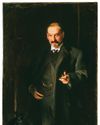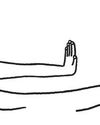Michael Bennett wants N.F.L. players to be a force for social change.

When “The Star-Spangled Banner” was played before the first game of the 2018 N.F.L. season, between the Atlanta Falcons and the Philadelphia Eagles, the defending champions, in September, Michael Bennett knew that he was being watched. Football fans, and sportswriters, were waiting to see if the narrative of another year would be dominated not by division rivalries but by the debate over players who protested racial inequality during the national anthem. Colin Kaepernick, the San Francisco 49ers quarterback who had begun the protests, in 2016, was the star of a new Nike commercial that was set to air during the game. (The tagline: “Believe in something. Even if it means sacrificing everything.”) But Kaepernick had been out of the league since the end of that season—he has sued the owners, alleging collusion—and, Nike campaign aside, rarely spoke publicly. Bennett, a defensive end for the Eagles, was one of the most recognizable players to keep the protests going in his absence. A three-time Pro Bowler, Bennett is naturally funny, and a little eccentric, with a gift for provocation. He used to do a little jig, inspired by pro wrestling, each time he sacked a quarterback; he once described it as “two angels dancing while chocolate is coming from the heavens on a nice Sunday morning.” His equally gregarious younger brother, Martellus, was a tight end, until he retired earlier this year, and they were an unmistakable pair: the outrageous, outspoken Bennett brothers.
This story is from the December 17, 2018 edition of The New Yorker.
Start your 7-day Magzter GOLD free trial to access thousands of curated premium stories, and 9,000+ magazines and newspapers.
Already a subscriber ? Sign In
This story is from the December 17, 2018 edition of The New Yorker.
Start your 7-day Magzter GOLD free trial to access thousands of curated premium stories, and 9,000+ magazines and newspapers.
Already a subscriber? Sign In

BADDIE ISSUES
\"Wicked\" and \"Gladiator II.\"

LET'S MAKE A DEAL
\"Death Becomes Her\" and \"Burnout Paradise.\"

ANTI HEROES
\"The Franchise,\" on HBO.

FELLOW-TRAVELLERS
The surprisingly sunny origins of the Frankfurt School.

NOW YOU SEE ME
John Singer Sargent's strange, slippery portraits of an art dealer's family.

PARIS FRIEND - SHUANG XUETAO
Xiaoguo had a terror of thirst, so he kept a glass of water on the table beside his hospital bed. As soon as it was empty, he asked me to refill it. I wanted to warn him that this was unhealthy - guzzling water all night long puts pressure on the kidneys, and pissing that much couldn't be good for his injury. He was tall, though, so I decided his insides could probably cope.

WILD SIDE
Is Lake Tahoe's bear boom getting out of hand?

GETTING A GRIP
Robots learn to use their hands.

WITHHOLDING SEX FROM MY WIFE
In the wake of [the] election, progressive women, who are outraged over Donald Trump's victory at the ballot box, have taken to social media with public, vengeful vows of chastity. - The Free Press.

DEADLINE EXTENSION
Old age, reborn.